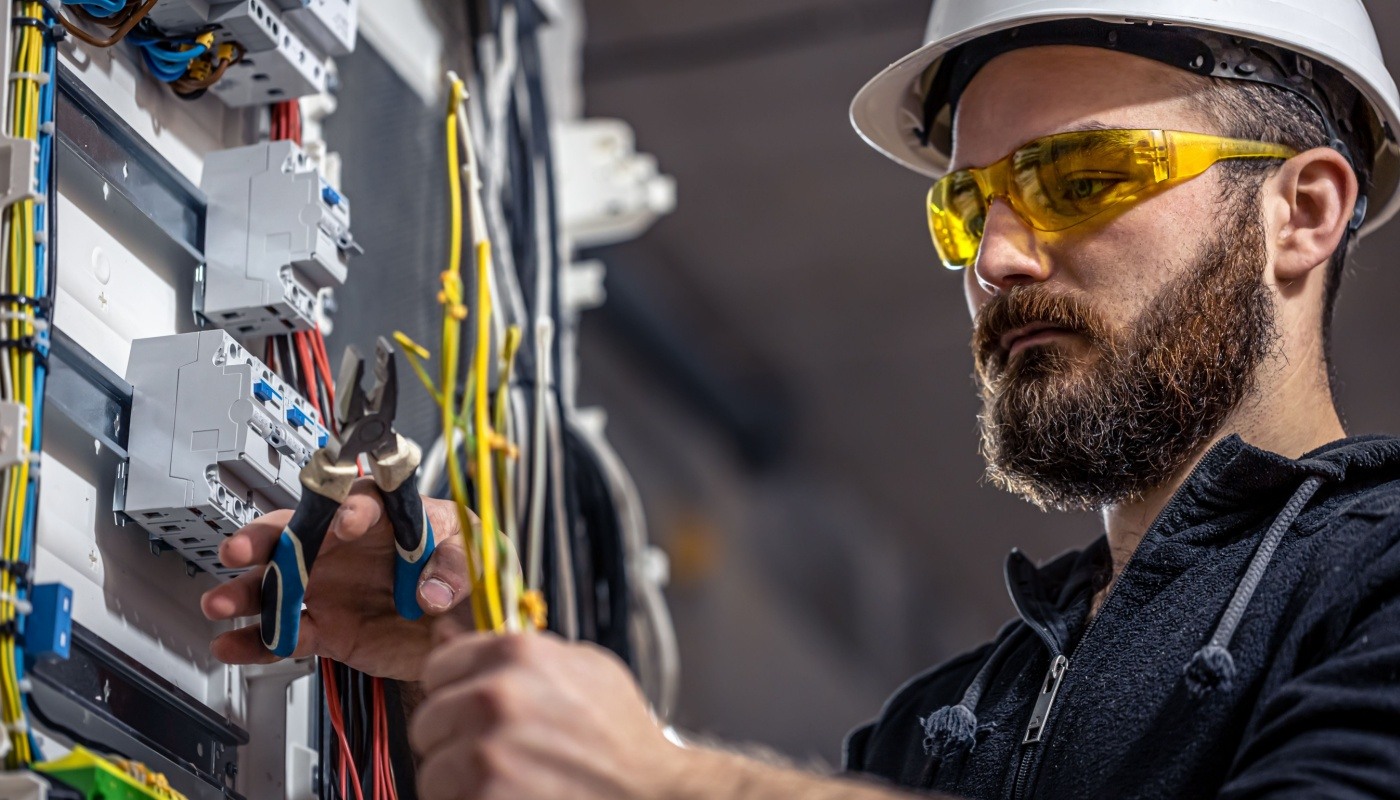How AI Informs Better Decision-Making for Electrical Contractors
From September 28 through October 1, 2024, professionals in the electrical contracting industry will gather in San Diego, California, for the NECA 2024 Convention & Trade Show. With over four days of educational sessions covering a wide range of topics, attendees will have the opportunity to learn from industry experts about current trends and gain actionable insights to help them future-proof their businesses.
One of the industry insiders presenting at NECA 2024 is ELECTRI International’s Executive Director, Josh Bone, who will be speaking to one of the most transformative topics right now — the impacts of AI on the electrical construction industry.
Table of Contents
Technology Plays an Increasingly Integral Role in Construction
Though more slowly than most other industries, technology has evolved in construction, particularly the acceptance and adoption of AI-powered tools.
“AI in the construction industry has landed,” writes Doug Dockery, ConstructConnect’s CTO. “As technology advances, AI is expected to become an even more integral part of the construction process, helping to improve efficiency, reduce costs, and enhance construction performance outcomes.” It will soon inform every step of the process.
For example, AI intersects with Building Information Modeling (BIM) to transform construction planning, writes Santosh Kumar Bhoda, a partner at the Trade Promotion Council for Geospatial and Space Industry. He notes that these technologies enable:
- Predictive analytics for better decision-making.
- Optimized generative design.
- Accurate scheduling and resource allocation.
- Risk management via real-time safety monitoring.
- Cost management and automated procurement.
Because of AI’s seismic impact on the industry, you can no longer afford to ignore it. The technology isn’t a nice-to-have tool in your arsenal but a must-have resource for trade contractors who want to stay competitive.
That said, you can’t just buy the software and expect it to magically solve all your problems. It must be incorporated purposefully into your tech stack to play a meaningful role in maximizing your process efficiencies and productivity.
As Bone says, it’s got to be done right. “It’s not about just throwing technology at a problem,” he explains. “You really integrate the technology with people and process, and then the technology is the connective tissue. That allows us to work together in a more efficient manner.”
Ultimately, AI makes your people more productive and your business more profitable. Here’s how.

How AI Positively Impacts Electrical Construction
The success and longevity of your electrical contracting business first depends on your ability to win bids. But it also depends on your ability to manage projects so that you can finish jobs on time and on budget. In today’s competitive landscape, you need AI-powered technology to achieve these ends.
Makes Administrative Processes More Efficient
AI makes administrative processes more efficient for field and office teams so they waste less time on paperwork and spend more time on project-specific tasks that advance projects towards completion.
Think about this: How much time do you waste trying to get your field teams to submit time cards, daily reports, and field notes on a daily basis? Workers often put it off for days at a time because it’s extra work at the end of the day and they don’t have time to get to the office and drop off the paperwork.
AI-backed construction project management software, like eSUB, changes that.
It allows field teams to complete their administrative tasks digitally from mobile devices anytime, anywhere. Because some of these processes are automated with the technology, field workers are more likely to complete them on a regular basis which means office teams have access to that information sooner. As a result, teams can collaborate better to keep projects progressing.
The technology also streamlines other critical project elements such as change orders, purchase orders, RFIs, and submittals. Inefficiencies in any of these processes can quickly derail jobs. AI tools automate parts of these processes which makes them more efficient.
Supports Better, Data-Backed Business Decisions
Perhaps most importantly, AI allows electrical contractors to make faster, more-informed business decisions. Without the technology, you have to manually track down dispersed data and cull it for insightful information. Making decisions based on that data can be risky because the data is often inaccurate or outdated.
AI changes that by capturing and centralizing real-time project data and then analyzing the historical and current project information to give users valuable insights. “Ultimately, the hope is that having the ability to use AI to capture and organize all that data will assist contractors and construction firm management in making informed business decisions,” writes David Jean, director of Altus Exit Strategies and a principal at Albin, Randall & Bennett.
This ability to make data-based decisions can positively impact different aspects of projects for electrical contractors, such as risk management, safety, predictive maintenance, project planning, change management, procurement, and resource allocation.
Simply put, AI is now in the DNA of construction. Construction “is no longer about wheelbarrows and shovels. It’s about technology and that’s a critical part of the way that we work,” says Bone.
We look forward to Bone demonstrating the impact of AI and the critical role of the technology in decision-making for electrical contractors in his upcoming presentation at NECA on Sunday, September 29, from 2:00 p.m. to 2:50 p.m.
We also look forward to seeing you at our NECA booth #2232 so we can demonstrate how our AI-powered construction project management tool can support your business.
Images used under license from Shutterstock.com.


.webp?width=352&name=Blog_AnthonyMoore%20(1).webp)